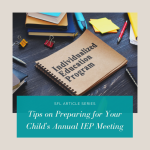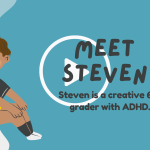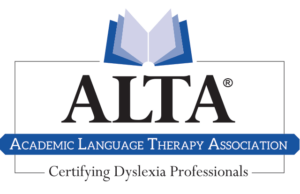No products in the cart.

What is an IEP?
Also known as the Individualized Education Program, the IEP provides eligible students with services and accommodations that fall under special education. It is a blueprint for the child’s special education experience at school.
Does my child need an IEP?
Here are some reasons why you may want to consider an IEP for your child.
- Pattern of difficulty grasping new concepts and skills
- Frequent errors while reading
- Falling behind their peers
- Disconnect between a child’s potential and performance
- Executive functioning challenges like poor time management, organization, and planning skills.
- School refusal or high level of stress and anxiety
- Difficulty staying focused or easily distracted
- Diagnosis or suspicion of a learning disability
- History of traumatic brain injury and/or neurological disorders
- Hearing, visual, or orthopedic impairment
You can refer to IDEA’s Disabilities Categories to screen if your child may be eligible for an IEP.
My child doesn’t qualify for an IEP, what can I do to support my child?
If your child doesn’t need or qualify for an IEP but seems to be struggling in school, we can work with parents and teachers to develop a plan to support your child effectively in school and at home. A parent or teacher’s job can often be overwhelming, so in our role as case managers, we work with teachers and learning specialists to develop accommodations that can help your child improve academically. We can also help teachers realistically implement accommodations in a busy classroom.
How do I get an IEP?
In order for your child to receive an IEP, he/she has to be eligible. Sometimes your child’s teacher may recommend starting the IEP process for your child or you may have to request it. Either way, they will need your consent to evaluate the child first. You have three options. You can get a free evaluation through the school, request an IEE (independent educational evaluation) paid for by the school, or pay out of pocket for a private evaluation. Talk to your child’s teacher about the correct steps to request an evaluation. You will likely have to write a letter to the school formally requesting an evaluation, giving consent, and outlining reasons why you believe your child needs one.
What are some examples of Special Education (SPED) services provided under the IEP?
Common examples of SPED services included under “specialized academic instruction” may include small group and/or 1:1 reading or math support with a learning specialist. Examples under “related services” may include speech or occupational therapy. Other common “accommodations” include extra time during tests, preferential seating, and/or the use of assistive technology. If your school is not able to provide the services outlined in your child’s IEP, you may request the services be met through an outside provider.
What are the pros and cons of a school vs. a private evaluation?
While a school-provided evaluation is free, a comprehensive private evaluation can be pricey, ranging anywhere from $5,000-15,000. School-based evaluations are designed to determine if your child is meeting grade-level standards and if they qualify for services. In general, a private evaluation is more comprehensive, providing a roadmap of your child’s strengths and weaknesses, recommendations for data-driven intervention, and a plan for how you and your child’s school can support your child both in and out of the classroom. You can also be sure that the results and the recommendations are being made without consideration of the financial resources of the school or bureaucratic tape. Because approaches, quality of reports, and the price of private evaluation can vary a lot, it is important to seek a referral to a reputable and experienced professional. You can contact us to request referrals.
What are my rights?
IDEA is the federal special education law that protects kids with disabilities from age 0 to 21. (or up to high school graduation, whichever comes first) Here are the most relevant laws pertaining to parents. We recommend you consult with a special education attorney or advocate for specific questions.
How do I determine eligibility for an IEP?
After the evaluation, an IEP eligibility meeting will be scheduled where your “IEP team” will determine whether your child qualifies for an IEP. Your child will only qualify if he/she meets at least one of the conditions covered under IDEA and if the disability affects your child’s ability to learn leading to the need for special education services. The most common category under the IDEA is “Specific learning disability” or SLD. SLD covers a specific group of learning challenges that affect a child’s ability to read, write, listen, speak, reason, or do math. Examples include dyslexia*, dysgraphia, and dyscalculia.
*The state of CA does not screen for dyslexia as part of the IEP process.
What is an “IEP Team”?
Under IDEA, an IEP is created by an IEP team that must include the child’s parent, at least one of the child’s general education teachers, at least one special education teacher, a school psychologist or other specialist who can interpret evaluation results, and a school district representative with authority over special education services.
How to prepare for an IEP meeting?
Preparing for an Individualized Education Program (IEP) meeting can be a confusing process for parents and guardians who wish to advocate for their child’s educational needs. Given all of the topics covered in the average IEP meeting, the preparation of talking points can feel overwhelming to most parents. There are several actions you can take to be prepared for your child’s annual IEP meeting. Tips on Preparing for Your Child’s Annual IEP Meeting.
Is an IEP permanent?
Your child will receive an annual review of the IEP where your child’s IEP team will come together to review and discuss any needs or changes. Every 3 three years, IDEA will require your child to receive a comprehensive re-evaluation by the school to determine if your child still qualifies for special education and/or if the needs have changed. This is often known as a Triennial. Parents can request a re-evaluation before the 3-year mark if they feel it is needed. Under IDEA, students are eligible to receive up to 1 re-evaluation every year.
Why should I request a re-evaluation?
There can be new areas of concern that may need to be addressed or the original evaluation was insufficient to address the student’s needs.
What’s the difference between an IEP and a 504 Plan?
The IEP is covered under IDEA, while the 504 plan is covered under a different law, Section 504 of the Rehabilitation Act, and does not fall under Special Education. The 504 is a formal plan the school develops to give support to students with disabilities. Common accommodations that fall under a 504 Plan include extra time on tests and preferential seating in the classroom. Learn more about the difference between the IEP and 504 Plan.
Do I need a special education advocate?
We recommend working with a special education advocate if you feel your child’s IEP does not meet his/her needs and/or you intend to dispute it. An advocate can help inform you about your rights, attend IEP meetings, help set IEP goals, and help provide support along the way. You can contact us to request referrals.
How do I dispute my child’s IEP?
- You can request an IEP meeting to address any concerns you have.
- You can ask for mediation, which will involve bringing in a neutral third party to help reach a solution with the school.
- You can file a formal written complaint that indicates a violation of IDEA as part of a due process complaint.
- You may have a resolution session at the start of due process where you can negotiate with the school.
- If you don’t win the due process hearing, you can file a lawsuit with the state or federal court.
- You can file a State complaint by writing a letter to the Department of Education asking for an investigation of the school’s violation of IDEA.
- Similarly, you can file an Office for Civil Rights complaint to the Office for Civil Rights under the Department of Education indicating a violation of section 504 of the Rehabilitation Act and asking for an investigation of the school.
We recommend you consult with a special education attorney or advocate for specific questions or legal advice. You can contact us to request referrals.
Additional Resources:






